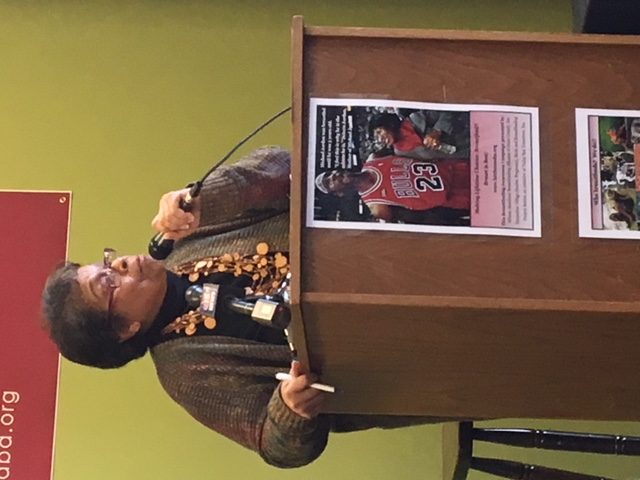 Madison native Betty Banks was always interested in Social Justice issues from early in her life.
Madison native Betty Banks was always interested in Social Justice issues from early in her life.
“I think it’s because of the family that I came from. I never knew my grandfather, but I did know my grandmother, and I had aunts, and my mother and my dad were always politically active,” said Betty.
William Miller is grandfather of Betty and Anna Mae is grandmother of Betty. At age five Betty moved from Greenbush area to East Dayton Street Area. “That was the neighborhood that my grandparents settled in at the turn of the century. My grandfather was a lawyer and my grandmother was a teacher. When they got to Madison, he couldn’t practice law and she couldn’t teach. But he ended up working for Governor Bob La Follette, as a messenger, but in reality he was an aide to the Governor, because my grandparents were early pioneers in the social justice and civil rights era at the turn of century. They were friends to W.E.B.Du Bois,” one of the most important African American activists during the first half of the 20th century. He co-founded the NAACP and supported Pan-Africanism.
 Greenbush neighborhood is where her grandparents settled in but Betty moved out from Greenbush at age 5. “It was a community. There were many immigrants that were Italian and Jewish, and then there were black people that lived there. It was really about community and people who helped each other out and got to know each other as people and learned from each other,” she says.
Greenbush neighborhood is where her grandparents settled in but Betty moved out from Greenbush at age 5. “It was a community. There were many immigrants that were Italian and Jewish, and then there were black people that lived there. It was really about community and people who helped each other out and got to know each other as people and learned from each other,” she says.
But that community was destroyed by urban renewal. “Well, that was in the 60s, that was what happened when politicians decided what they needed to do. In my view, it was to break up the political power. It was sold as a way to improve the neighborhood, but that really wasn’t what it was about,” Banks says.
Betty never saw her ethnicity as a hindrance and she never felt less than anyone else. “Growing up in Madison and growing up in the kind of family that I grew up in, I grew up understanding the history of black people in this country, and so growing up as a black woman and as a black girl, I always felt good about who I am. That’s because of the kind of family that I grew up in, who really did emphasize history,” she says.
Betty is one of the co-founder of Madison Times. Madison Times was founded in 1990. “I think that in communities of color, we always need to have our own press. So that was the main reason for creating The Madison Times, was so that we as people of color could tell our own stories and do our own reporting on things that were happening in the community. We need to tell our own story and we need to report on the news that’s in our community without a biased slant. So that’s why it’s important that the black press live and be supported,” says Banks.
Betty has her own non-profit called Today Not Tomorrow. “We’re best known for our television show, Club TNT. But we opened a family resource center that’s co-located in the East Madison Community Center. A lot of work that we do with families is around health and helping families improve and understand their own health as well as the health of their children, and being advocates for their children living healthier lives. We have a garden out there and we talk about healthy eating and that kind of stuff,” she says.
Betty is a very dedicated and feels that everyone should have safety nets. “In the climate that we are in right now, a lot of safety nets are getting taken away. Many times, people think about safety nets as handouts, and they’re not. Most of the time, what people need is just a safety net so that they can get on their feet and move forward and improve their lives. Because the equity in health and education, criminal justice, all those things, it’s lacking. So when you take away all the safety nets, people don’t have a way to improve their lives to be able to get better jobs, better education. So I think that we need to really look at what, as a nation and as a community, we need to do to make sure that we protect those safety nets,” says Betty.



































